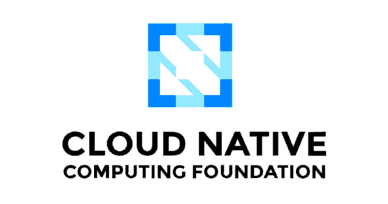TechRepublic: “How to transition a developer career into Kubernetes”
Even developers who do well know new skills can help them negotiate a pay rise and make them more attractive to other companies. And the hot tech to learn now? Kubernetes.
September 28, 2020
BuiltIn: “What is Cloud Native and Why is it Important”
When Cloud Native Computing Foundation (CNCF) general manager Priyanka Sharma has to explain what she does to someone at a dinner party, she starts by asking if they’ve heard of Kubernetes: CNCF’s primary open-source software project, which helps organizations...
September 25, 2020
Kubernetes podcast: "CNCF: Under new management, with Priyanka Sharma"
After 5 years at the helm of the CNCF, executive director Dan Kohn is stepping down to launch a new Public Health initiative. The new General Manager of the CNCF is Priyanka Sharma, who joins our...
June 10, 2020
Built In: "How to contribute to open source: The ultimate guide"
Leaders from Red Hat, CNCF and Drupal weigh in on how to get started – and start building relationships.
June 9, 2020
Business Insider: "Everything you need to know about Kubernetes, the Google-created open source software so popular even Microsoft and Amazon had to adopt it"
[Kubernetes] ended up becoming a massive phenomenon among software developers, with tens of thousands of code contributions from programmers across the planet, and users at companies like Ticketmaster, Spotify, Pizza Hut, Lyft, the New York Times,...
January 27, 2019
ComputerWeekly: "Why Kubernetes is driving a groundswell in containerisation"
According to analyst Gartner, the market has chosen Kubernetes as the de facto container orchestration technology, and at the recent KubeCon conference in Shanghai, several businesses joined the user community for Kubernetes.
November 15, 2018
Changelog: "Kubernetes brings all the cloud natives to the yard"
We talk with Dan Kohn, the Executive Director of the Cloud Native Computing Foundation to catch up with all things cloud native, the CNCF, and the world of Kubernetes. Dan updated us on the growth KubeCon...
September 12, 2018
Container Journal: "CNCF adopts database project"
The Cloud Native Computing Foundation (CNCF) is now hosting an open source distributed transactional key-value database optimized for stateful applications running in a container.
September 7, 2018
Data Center Dynamics: "Who’s afraid of cloud native?"
The world of IT is changing at breakneck speed, and much of it is down to just one technology – application containers, and Kubernetes in particular. Designed for cloud computing, this approach has given birth to...
September 7, 2018
Forbes: "Beyond Kubernetes – 5 promising cloud-native technologies to watch"
Kubernetes, the open source container management platform has become the anchor for cloud-native technologies. Since the time it was handed over to the Cloud Native Computing Foundation (CNCF), the project has received unprecedented interest from the...
September 2, 2018


